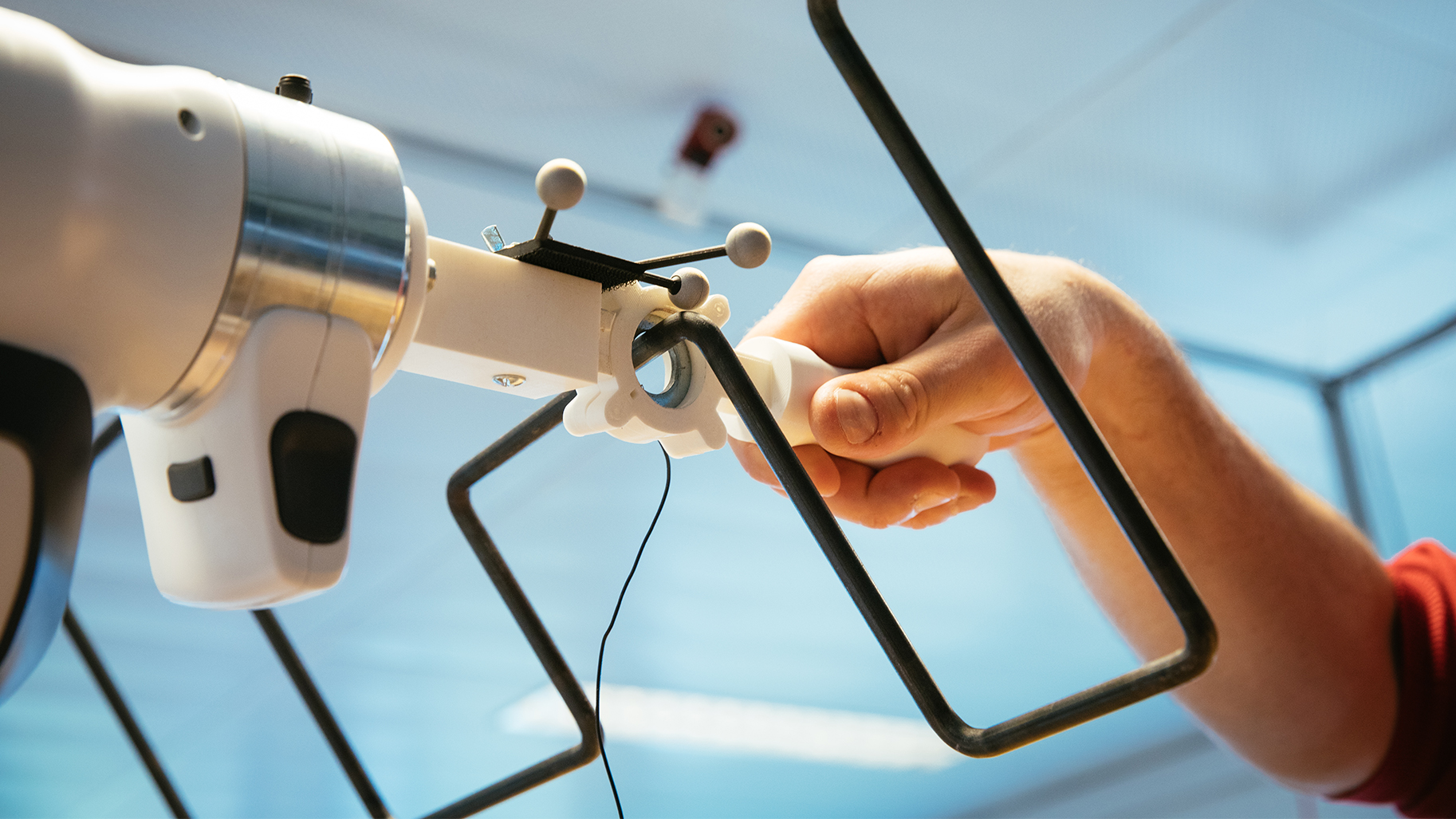Artificial intelligence: towards augmented businesses
Date:
Changed on 29/09/2022

“We’re going to have to learn to live with machines that think and contribute to intellectual production”, says Stéphane Grumbach, senior researcher at the Inria Lyon Centre with regard to the development of artificial intelligence in the business world.This prospect, the subject of many fears and fantasies, signals a new step in corporate workings for this data specialist, whose research currently focuses on “the impact on society of the generalisation of data collection and algorithmic processing”and “the new geo-political balances”which this trend is helping to shape.
“Humans have been fashioning tools to facilitate tasks since the dawn of humanity”, he reminds us. “With the invention of the steam engine, man’s physical strength became less essential, because it was replaced in part by the power of machines and energy. Now, with the development of an intellectual machine power, human beings are no longer the only ones capable of thinking, analysing and anticipating. Human intellectual strength is thus partially replaced by that of machines, which will gradually play a greater role in decision making.”
In terms of research, the combination of three key breakthroughs has given rise to this new form of grey matter: the design of algorithms enabling highly granular actions, the creation of tools to facilitate real-time management of vast data sources, and the ability of these solutions to develop rapidly and relatively easily.
“AI raises two types of challenge”, Stéphane Grumbach explains. “The first, in which we have achieved a great deal of progress, concerns algorithms. The second is more complex and almost philosophical; it relates to intelligence, which we can’t really define, and our ability to accept that a machine can do anything a human can.”
However, the ability to accept this fact may be weaker among professionals in Western countries than among their Asian competitors. “I think that, on the whole, our Western societies have a dominant relationship with nature; humans are used to being at the centre of things, to deciding, and can sometimes have difficulty accepting that a machine can make choices instead”, the researcher explains. “Things are very different in Japan, for example, where all strata of the population have rituals based on a relationship with nature, and where the idea that a machine can decide is acceptable - humans are not the centre of the world, they form one of its elements.”
That said, a new generation of human-machine interfaces (chatbots, vocal assistants, automated interfaces, brain-machine interfaces, etc.) are helping to make AI more intuitive and acceptable to humans everywhere. According to France Stratégie in a report produced for the Ministry for Labour, these interfaces, often learning based, offer humans easier access to a service or advisory function.
They are increasingly aimed at creating a “human-machine partnership”, as recently explained by Wendy Mackaun, senior researcher at the Inria Saclay - Île-de-France Centre. The aim is to produce interactions which help users increase their own abilities when they use an intelligent system.
Artificial intelligence technologies are used by a majority of self-driving shuttle or car manufacturers such as PSA, by robot designers, or for the automation of certain administrative tasks (such as the processing of loan applications or the calculation of compensation payments to be made to victims).
“You can also find AI in predictive maintenance algorithms, which are used to automatically detect problems with equipment such as aircraft reactors”, says Stéphane Grumbach. Their discoveries are then relayed to technicians and engineers, who intervene accordingly.
The most striking example, however, is predictive justice, a widespread practice in the USA (and a subject of debate on this side of the Atlantic). “An algorithm surveys and analyses all case-law before suggesting a ruling, which is often retained.”Opponents fear, justifiably, that these algorithms, which draw on the existing corpus, reproduce regional biases or forms of prejudice against certain types of personalities. But this is a case in point. “This drawback already exists with humans and we could actually hope to correct that with algorithms”,says Stéphane Grumbach.
Given the growth in the volume of data to be analysed, and the limits of the human brain, externalising a part of analysis and reasoning has become a necessity in this sector, as in others. “In organisations, AI is often called on as back-up for the final battle and in order to tackle problems we have never managed to solve”, the researcher explains. For example, French and European police forces have adopted such technology in an attempt to shed light on a number of unsolved criminal affairs (to deal with leads which investigators have neither the human nor material means to examine in their entirety).
Another innovation relates to the ability of machines to make informed decisions in the same way as humans do, as in the case of the Anglo-Australian mining giant Rio Tinto, whose new mineral extraction systems operate with increasing levels of autonomy, identifying alone the locations and types of extract on the basis of the data available to them.
Employees now need to find their place alongside and in complementarity with these new intelligent machines. Above all, a way must be found to safeguard their professional expertise and resist the temptation to make a full switch to machines. Employees’ perspectives will always be essential in controlling the relevance of AI tools.
Podcast "A horizon of generalised artificial intelligence ? ", recorded in Lyon on 13 October 2021 as part of the Mercredis de l'Anthropocène (Wednesdays of the Anthropocene): Stéphane Grumbach and François Candelon, Managing Director and Partner of the Boston Consulting Group, discuss the ethical and developmental issues associated with AI.
Latest report from the National Security Commission on Artificial Intelligence in the US, 2021.
What artificial intelligence does to humans at work. Sociological visit of a company, article by Yann Ferguson, sociologist, teacher-researcher at the Icam of Toulouse, 2019.
France Stratégie report "Artificial Intelligence and Work", 2018